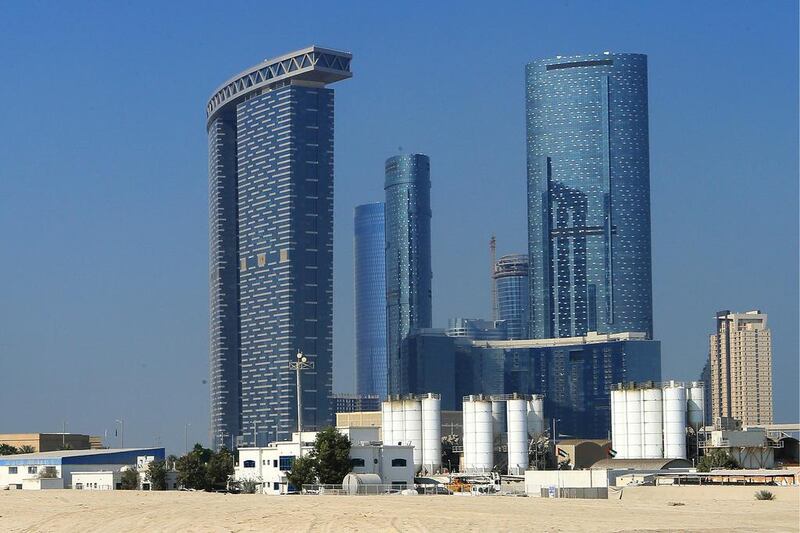Some upmarket Abu Dhabi landlords are starting to offer tenants small rent reductions as the low price of oil prompts the capital’s housing market to soften.
Overall average housing rents in Abu Dhabi fell by 1 per cent during the three months to the end of December 2015, the real estate services broker CBRE reported, as landlords reduced rents for some larger and higher-end apartment types.
However, rents ended 2015 about 4 per cent higher than they started the year, the company said, particularly driven by rent rises for smaller, more affordable homes.
It said that tenants looking for cheaper accommodation were renting homes in off-island locations such as Khalifa City, where annual rents for one-bedroom apartments are between Dh40,000 and Dh55,000. In the city centre, they rent for between Dh60,000 and Dh110,000.
“In response to the tempered market outlook, some landlords are now starting to offer tenants more flexibility, while also becoming more receptive to minor rental discounts, as they strive to maintain and build tenant loyalty to uphold occupancy rates,” said Matthew Green, the head of research and consulting in CBRE’s Dubai office.
Abu Dhabi scrapped its rent cap, pinning rent rises for existing tenants to just 5 per cent, in 2013.
The move, which came at a time of an economic boom, helped fuel rampant inflation in 2014 and led to the brokerage ranking Abu Dhabi as the second most expensive place to rent in the world last year – something that has prompted many tenants to up sticks to the cheaper parts of town.
But the oil price slump has prompted the Government to put some planned infrastructure projects on hold, precipitating a series of job cuts in the capital’s highly paid oil and gas, infrastructure, construction and services sectors.
The UAE rail operator Etihad Rail last month announced a “restructuring initiative” thought to have included cutting almost a third of its workforce as the Government comes under pressure to rein in spending.
And last week, the British engineering company Atkins became the latest construction-related group to cut jobs in the region because of worsening economic conditions. The western law firms Simmons & Simmons, Latham & Watkins, Baker Botts and Herbert Smith Freehills have also recently closed their offices in the capital.
Other major infrastructure projects in the emirate are likely to come under pressure in the coming months as state budgets are squeezed further, possibly leading to further staff cuts for the sort of well-paid expats who would otherwise be renting upmarket apartments in the city.
CBRE’s figures confirm reports of a general slowdown in Abu Dhabi rents last year. Last week, the property data company Reidin reported that, according to its figures, rents in the capital fell by an average of 3.8 per cent last year.
lbarnard@thenational.ae
Follow The National's Business section on Twitter






